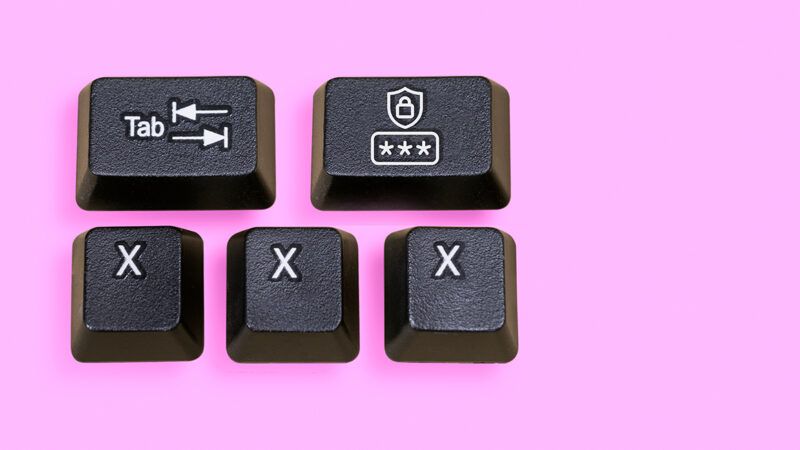These States Want You To Show ID To Watch Porn Online
At least eight states have already enacted age-verification laws, and several more are considering bills.

The latest trend in anti-sex action is carding people to watch porn online. After years of passing resolutions to declare porn a "public health crisis," state lawmakers are coalescing on age-verification measures as a way to address this alleged scourge.
At issue is minors' ability to access online pornography. Even when porn platforms technically require visitors to be age 18 or older, all minors usually have to do is check a box saying they're adults and they're in. Some parents and politicians want more stringent age-verification measures.
Enter laws requiring porn platforms to verify visitor ages. Such laws have already taken effect in at least eight states (Arkansas, Louisiana, Mississippi, Montana, North Carolina, Texas, Utah, and Virginia), and bills to do the same were introduced in at least 11 other states in 2023. So far in 2024, legislators in at least seven states (Georgia, Idaho, Indiana, Iowa, Kansas, Ohio, and Oklahoma) have introduced such porn age-verification bills. While the particulars vary, most would result in all visitors to web-based adult-content platforms having to submit a government-issued ID proving their age, either directly to the platform or through a third-party verification service.
Supporters of such measures say it's no different than carding people in stores who try to buy age-restricted merchandise. But there's a big difference between momentarily flashing your ID in front of a store clerk and submitting it to a website or app. The latter creates a record, permanently attaching real identities to online activity that many people would prefer stay private.
From a privacy perspective, there are better and worse ways to verify ages on websites. (And not just porn sites: Some legislators now want to require them for social media.) But even the best verification methods would leave people vulnerable to hackers and snoops—and we can't count on authorities (or tech platforms, for that matter) to enact online age-verification measures in the best ways. These measures are shaping up to be a giant privacy nightmare.
And for what? Porn websites could get around laws such as Louisiana's—which applies only to sites where more than a third of the content is "harmful to minors"—by padding their archives with nonpornographic content. Teenagers could get around state prohibitions by using a virtual private network to mask their location, visiting platforms based outside the U.S., or viewing porn on private message boards and the like.
Voluntary, tech-based ways to help parents prevent kids from visiting porn sites would be better. Perhaps rather than creating giant, privacy-infringing schemes, we should recognize that porn is a pervasive part of the digital ecosystem and that curiosity about sex is an undeniable part of adolescence. Stopping motivated teens from any exposure to online porn is impossible—but equipping teens to understand issues like consent, sexual safety, and personal vs. porn sex is not.


Show Comments (58)